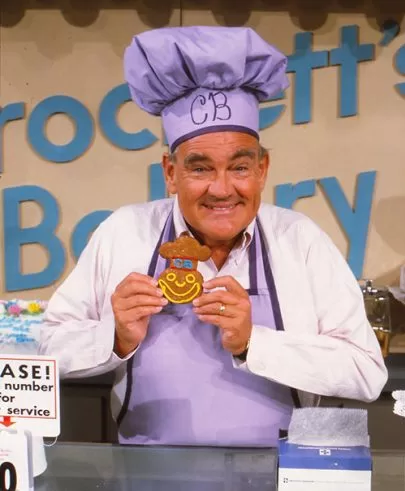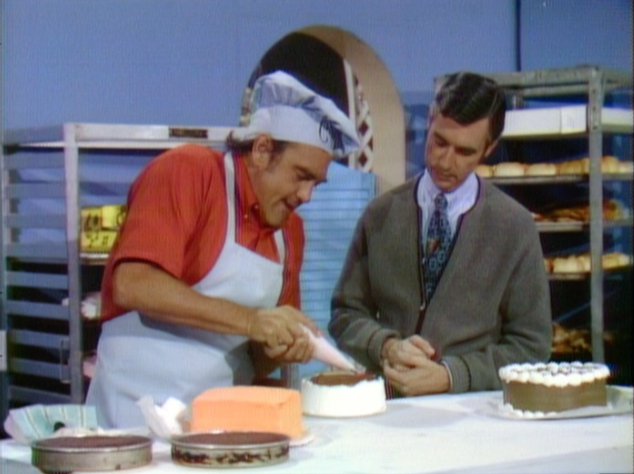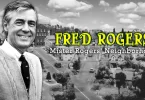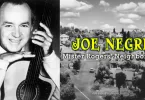Don Brockett, a multi-talented American actor, comedian, producer, and director, was born in Pittsburgh, Pennsylvania, on January 30, 1930. He is best remembered for his iconic portrayal of Chef Brockett on the beloved children’s television show Mister Rogers’ Neighborhood.
Throughout his illustrious career, Don significantly impacted the entertainment industry on and off the screen. He was known for his unique ability to bring humor and warmth to every project he worked on. There is much about Don that most people don’t know. However, he is so worth getting to know. He was widely known as a kind, generous, loving, not to mention talented man and more. This is what you need to know about the incomparable Don Brocket.
Born Richard Donald Brockett, he was the son of Richard Don Brockett, Sr., and Regina Krumenacker. He had two older sisters and one older adopted brother (a biological cousin to him), making him the youngest of four children. His father was a salesman for a stove company, while his mother was a homemaker. Both of his parents came from families with deep roots in Pennsylvania.

As a child, Don suffered from a case of polio that left him with a noticeable limp. He never let it get him down or get in his way. Don was known for doing what he wanted to do. He showed an early passion for the arts, which he pursued. In fact, being involved in the arts seemed to help him overcome some of his physical challenges. Not surprisingly, Don went on to study acting and dedicated his life to the entertainment world.
Don Brockett’s acting career began with his involvement in various off-Broadway shows. His talent and dedication soon led him to land small roles in major films, including such 1980s classics as Flashdance, Fletch Lives, The Silence of the Lambs, and Bob Roberts.
Don Brockett’s versatility as an actor also led him to work with acclaimed director George A. Romero in the 1985 film Day of the Dead, where he played a zombie. This role showcased Brockett’s ability to adapt to various genres and styles of filmmaking.
However, Don’s most memorable role was also the most surprising one. Those who knew him, and certainly not he himself, thought he would become best known as a star of children’s television. Yet, Don’s greatest claim to fame came when he was cast as Chef Brockett on the popular children’s television show Mister Rogers’ Neighborhood.

His character on this beloved program was known for his colorful chef’s hat, matching apron, and infectious enthusiasm for cooking. As Chef Brockett, Don Brockett brought warmth and humor to each episode, endearing him to millions of viewers. He became affectionately known as Chef Brockett wherever he went in public.
As a talented singer, Don appeared in most of the “operas” in the Neighborhood of Make-Believe segments of the show. In addition to having a bakery in the “real world” neighborhood of the show, Don’s character often made his way into the Neighborhood of Make-Believe even when there weren’t operas going on. Also, the show never shied away from showing Don’s limp, even having his character appear on crutches once, explaining that Chef Brockett had just had surgery on his legs.
In addition to his film and TV work, Don was part of the popular Pittsburgh-based comedy team “Brockett and Barbara,” where he honed his comedic timing and improvisational skills. Throughout his career, Don appeared in 17 movies, including several box-office hits filmed in his hometown of Pittsburgh.
Don also ventured into producing and directing. He founded his own production company, Don Brockett Productions, which allowed him to explore his creative passions further.
One of Don’s best-known projects as a producer and director was the annual comedic cinematic look at Pittsburgh titled Forbidden Pittsburgh. This series showcased Don’s unique perspective on his beloved city and highlighted his talent for storytelling and comedic timing.
Don Brockett was not just limited to acting, producing, and directing. He also showcased his talent for music composition. Don was a talented composer who loved writing music. He was so good at it that the prestigious Pittsburgh Symphony Orchestra performed the music he composed, further demonstrating his artistic versatility.
Throughout his life, Don Brockett was heavily involved in local charities, particularly those focused on polio research. Having suffered from the disease as a child, Don was passionate about finding a cure and supporting those affected by polio. His advocacy work also extended to other causes, including disability awareness and support for the arts community in Pittsburgh.
Don married Leslie Brockett in 1986. She supported him throughout his career and philanthropic endeavors. The couple shared a deep love for their hometown of Pittsburgh and its vibrant arts community.
Don Brockett’s passing on May 2, 1995, from a heart attack marked the end of an era in American television and entertainment. His grave can be found at Allegheny Cemetery in Pittsburgh, Pennsylvania.
Through his work on Mister Rogers’ Neighborhood and other projects, Don left an indelible mark on the hearts and minds of countless fans. His contributions to the arts community in Pittsburgh and beyond will always be remembered and cherished.
Carole Brown, president of the Pittsburgh Cultural Trust, said it best when she described Don Brockett as “a wonderful man” who “left an indelible mark on the arts community of Pittsburgh and the community at large.”
Don Brockett’s life and career testify to the power of determination, passion, and talent. Despite facing significant challenges in his youth, Don rose above these obstacles to become a beloved figure in American television and entertainment.
His legacy as an actor, producer, director, composer, and advocate for various causes will continue to inspire and impact future generations. Don Brockett’s story is one of resilience, creativity, and unwavering dedication to the arts—a true testament to the indomitable spirit of the human condition.
Learn More:




